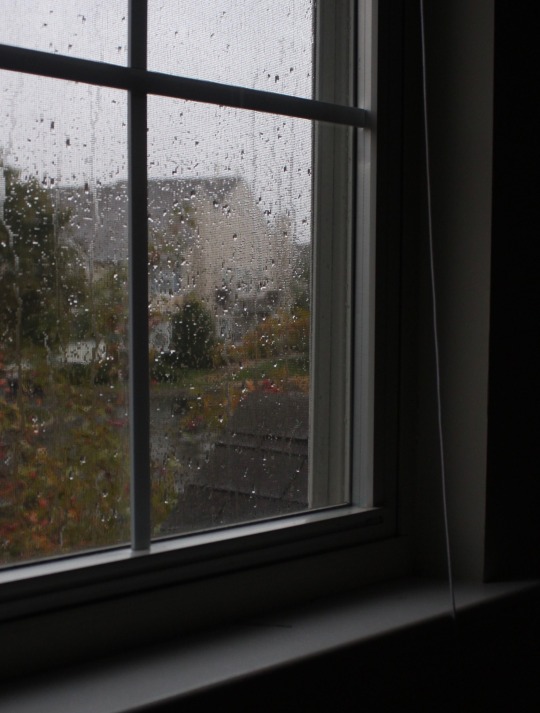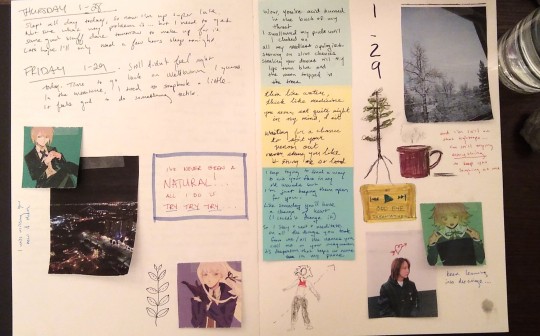Text
~더니
~더니 has no English equivalent so it’s tricky to explainㅜㅜ It basically indicates that you’ve observed/noticed/experienced something in the past.
~더니
*not used with 1st-person tense
*can be used with either verbs or adjectives
1. cause and result
요즘 눈이 많이 오더니 아무도 언니가 엄마한테 선물로 새 외투를 받았어.
언니가 운동을 열심히 하더니 식욕이 왕성해졌어.
민주가 아까 약을 먹더니 지금은 좀 괜찮아졌네요.
걔가 계속 노름을 하더니 결국 가산을 탕진하고 말았어.
2. showing difference/changes from time passing
아침에는 춥더니 낮에는 덥네요.
어제는 비가 오더니 오늘은 하늘이 맑네.
걔가 작년에는 좀 뚱뚱하더니 지금은 날씬해졌어.
예린이가 아까까지만 해도 공부하고 있더니 지금은 노네.
~았/었더니
*can only be used with verbs
1st clause is your own action, 2nd clause is the (observed) result
커피를 마셨더니 집중이 더 잘 돼.
어제 하루 종일 걸었더니 다리가 너무 아파.
공부를 열심히 했더니 성적이 좀 올랐어요.
밥을 너무 많이 먹었더니 배가 진짜 터질 것 같다.
83 notes
·
View notes
Text
Korean via lyrics - Stray Kids, MANIAC
정상인 척 다들 힘 좀 빼
짓고 있는 미소들은 쎄해
“Relax everyone, stop pretending to be normal
All of your smiles look weird“
정상이다 -- to be normal
verb + ㄴ 척 -- pretending to be (verb)
힘 좀 빼 -- relax (힘 means “strength” or “force”; 빼다 meaning “stop” in this case, although it seems to be used pretty situationally and most frequently as a command). Because of the way this whole first line is structured, it reads as “stop your effort of pretending to be normal”
짓다 -- to build, to construct
verb stem-고 있다 -- present progressive conjugation of (verb), like the “-ing” ending in English
verb-ㄴ/는 -- converts a verb into an adjective
미소(들) -- smile(s)
쎄하다 -- to feel strange
Lock이 풀리면 다 똑같지
눈은 날 못 속여
“When the Lock is released, we’re all the same
Your eyes can’t fool me“
풀리다 -- to loosen or release
verb-면 -- if (verb) (in this case it’s more like a hypothetical “when”)
똑같다 -- to be (completely) the same
verb-지 -- an ending that can make the verb statement more of a proposition, like a “isn’t it?” (e.g. in this case, “everyone’s the same, aren’t they?”)
속이다 -- to deceive, trick, fool
본체는 풀렸네
정신을 간신히 잡지
“The real self has been released
Barely holding on”
본체 -- the “body” in a very literal sense (different from 몸); in this case the “real” or fundamental self
verb-네 -- makes a verb exclamatory, indicates surprise or urgency
정신 -- mentality, consciousness
간신히 -- barely
잡다 -- to grasp, to hold on
눈 한번 깜빡이고 back
다시 세상이 정한
정상인 코스프레 준비
“After blinking once, back
Again, back to cosplaying as what
Society defines normal to be“
깜빡이다 - to blink
verb stem+고 -- “and’ following the verb
세상 -- the world
정하다 -- to decide
준비 -- ready
0 notes
Text
Resources I'm using right now to study Korean by myself (Sept. 2021)
Vocabulary
Korean Vocabulary by Evita (link)
(this link goes to her Anki page that you can download and import on your own anki to use it)
What I personally did was import it into my anki, export it as a txt. file and then pasted it on an excel file.
So in that way I have the list of all the vocabulary for a better self-control and I copy them in my memrise deck.
On excel I highlight in yellow the words I already know and in green the ones I don't know and I need to add to my vocabulary deck.
This deck has over 5000 words so you will use it for a good while hahah.
Grammar
Talk to me in Korean (TTMIK) Lessons
I was using the Korean in Grammar In Use books (I finished the first one and I started the first chapter of the second one) and I highly recommend them but right now I'm really busy with college so I had to squish my time to study Korean. That's why I decided to use the lessons TTMIK offers since they are short and I can do them faster.
Extra
Daily Routine in Korean by TTMIK
I finished this book a few days ago and it was really helpful now that I'm more advanced in my learning (I tried to use it when I just started and it was impossible for my brain to remember the phrases and make them make sense).
Resources made by me
Vocab deck (link)
This deck is made by me with all the resources I have used so far for vocabulary til now. The levels are divided in 1000 words each cause I think that helped better with my organization. If you decide to use it, I hope it can be helpful for you ^^
Hanja deck (link)
I made this one using the guide of Hanja made by How To Study Korean (link). It's a great guide, and I recommend it if you are interested on learning some hanja.
My deck has 260 hanjas that I found the most useful and interesting. Right now I'm not studying hanja anymore cause I think the ones I learned are enough according to the level where I am now, and I wanna use that time to learn more things in Korean properly. That's why, if you wanna learn them all I recommend you the guide made by How To Study Korean.
I hope this can be truly helpful for anyone who needs it.
I will try my harderst to post more often, specially lessons and vocabulary lists.
Thank you to everyone who follows the blog, I hope it can be useful to yall. And also thank you for everyone who follows me on Instagram (@/itslostfocus) where I post daily pics -not so daily, sorry I've busy- of my progress learning Korean.
Happy learning everyone! ^^

267 notes
·
View notes
Photo









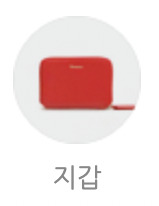
여성 woman
• 전체 all, whole, entire
• 상의 tops
• 하의 bottoms
• 원피스 dress
• 아우터 outerwear
• 모자 hat
• 신발 shoes
• 가방 bag
• 지갑 wallet
47 notes
·
View notes
Photo
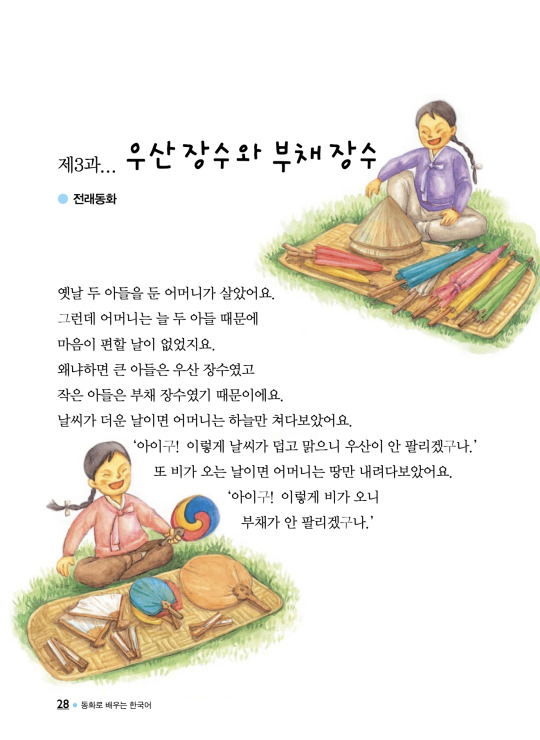
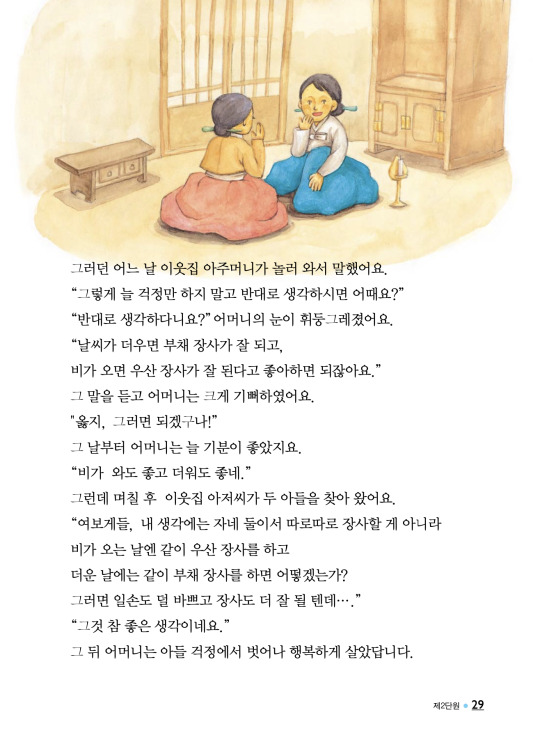
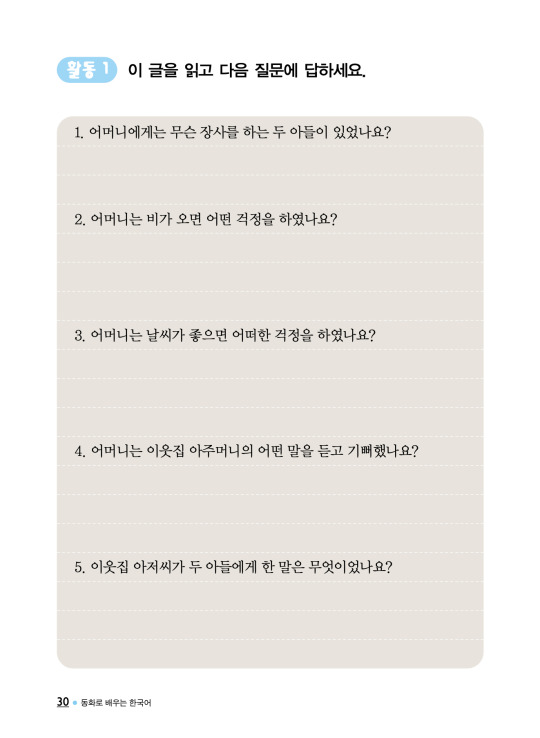
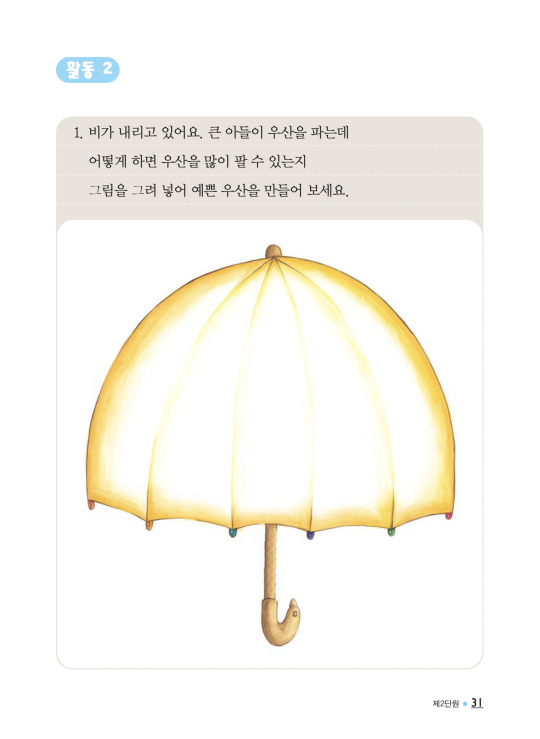
Korean Reading Practice - 동화로 배우는 한국어
제2단원 제3과 - 우산장수와 부채장수
74 notes
·
View notes
Photo
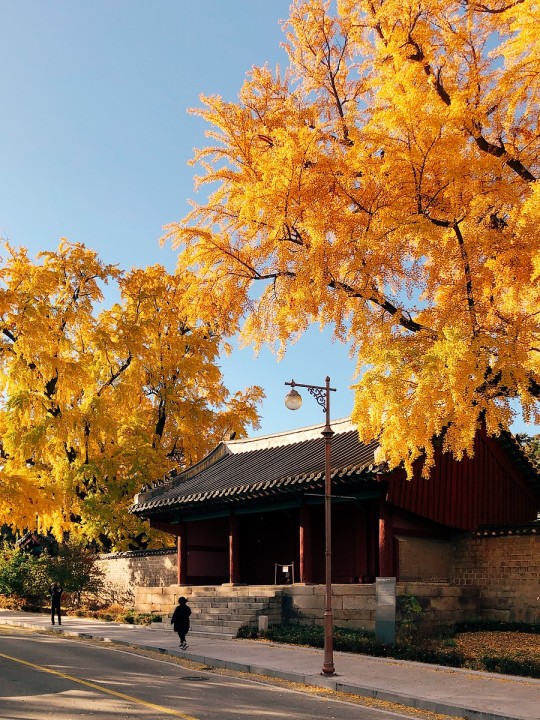



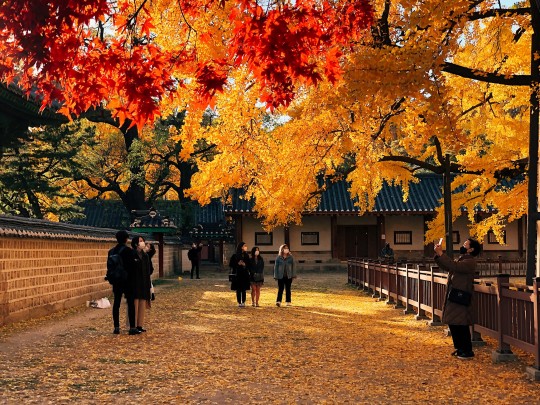




Beautiful ginkgo trees at historic Sungkyunkwan University.
4K notes
·
View notes
Text
Korean Vocab: Earth, Nature, Environment
지도 (map)
숲 forest (= 삼림)
해안 coast (= 연안)
해협 strait (대한해협 Korean strait, the one separating Korea and Japan)
도시 city, town (대도시 metopolitan city, 소도시 small city, 환경도시 green city, 산업도시 industrial city, 교육도시 educational city, 어촌 fishing village)
시골 countryside
수도 capital
마을 village (천통마을 traditional village)
대륙 continent
영토 territory (= 영역)
반도 peninsula
육지 land
경도 longitude
위도 latitude
적도 equator
남극 South Pole
북극 North Pole
자연 (nature)
들판 field
고원 highland, plateau
평원 plain
사막 desert
절벽 cliff
산 mountain (산꼭대기, 정상 peak, 산등성이 ridge)
언덕 hill
샘 spring
폭포 waterfall
수로 wateway
계곡 valley (= 골짜기)
강 river
천 stream
호수 lake
만 gulf, bay (= 내포)
대양 ocean (= 해양)
바다 sea
해변 shore (= 해안)
장면 scene (= 경치)
경관 scenery (= 풍경)
전경 panorama (= 장관)
수평선 the horizon (= 지평선)
화산 volcano
늪 a swamp, a bog (= 습지)
섬 island
동굴 cave
밀림 jungle, dense forest (= 정글)
바다의 움직임 (sea movement)
조수 the tide
썰물 ebb, low tide
만조 high tide
밀물 rising tide
파도 wave
물결 ripple
거품 foam (= 포말)
218 notes
·
View notes
Photo
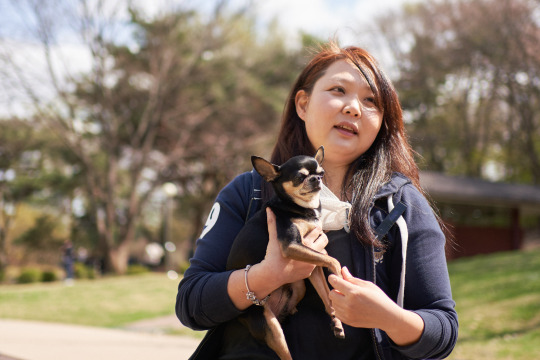
“딸기를 처음 만난 순간을 기억하세요?”
“처음 만났을 때가 2013년이네요. 원래는 다른 강아지를 보러 간 건데, 그새 그 강아지가 분양을 갔어요. 그런데 그 옆에 강아지 한마리가 웅크려 있었어요. 그리고 저와 눈이 딱하고 마주쳤죠. 태어난지도 얼마 안 된 느낌이라 언제 태어났는지 물어봤더니 13년 9월 23일이라는 거예요. 태어난지 두 달에서 석 달 됐던 거 같아요. 그런데 태어난지 석 달이 지나도 아무도 안 데려가면 얘는 어떻게 되는 걸까라는 생각이 갑자기 들더라구요. 당시에는 지금보다 애견 정보가 많이 없어서 분양샵을 간건데, 이후에 알게 된 사실인데요. 딸기를 데려온 분양샵이 아무래도 좋지 않았던 곳 같더라구요. 강아지 공장에서 강제로 교배 하게 해서 어린이 달인 5월이나 크리스마스 시즌에 맞춰서 분양이 나가도록 애들을 생산시킨다고 하더라구요. 그렇게 태어난 애들은 건강하지 않거든요. 그래서 오래 살길 바라는 마음에 ‘딸기’라고 지었어요.”
“이유가 있을까요?”
“강아지 이름을 음식이름으로 지어주면 장수한다고 해요. 그래서 요즘 애견들 이름 트렌드가 망고, 두부, 호두 이런 식으로 작명하더라구요. 딸기를 데려오는 날 갑자기 딸기가 떠올라서 짓게 됐어요. 딸기라는 이름이 남자이름에 안 맞아 보일 수 있지만, 저한테만큼은 딸기가 제일 좋거든요!”
*이 인터뷰는 코로나19 방역 지침을 준수하며 진행되었습니다.
“Do you remember the first time you met Ddalgi (Strawberry)?”
“I first met him in 2013. Originally I was going to see another dog, but that one had been sold to someone else in the interim. It was then that I locked eyes with a puppy curled up next to the one I had been after. He looked like a very young pup so I asked when he had been born and found out his date of birth was the 23rd of September, 2013. He was about two to three months old. Suddenly I thought about what would happen if no one took the puppy in after three months. I didn’t have as much information about dogs as pets then, so I’d gone to a shop to buy one. But it was after that time that I learned the truth. The shop I brought Ddalgi home from just wasn’t a good place. I heard they make dogs mate by force at puppy factories so that they give birth in time for selling off the babies around Children’s Day in May or at Christmas. Dogs bred in that way aren’t healthy. That’s why I called him ‘Ddalgi,’ in the hope he’d live a long life.“
"What’s the connection?”
"They say that if you name your dog after a food, they’ll live a long time.That’s why the current trend for dog names includes names like Mango, Tofu, and Walnut. I suddenly thought of strawberries the day I brought him home, and that’s how he got his name. Ddalgi may not seem like the right choice for a male, but to me, Ddalgi is perfect!”
*This interview was conducted in accordance with COVID-19 preventative government guidelines.
38 notes
·
View notes
Text



정말 가깝다고 느끼는 친구들은 아직 미국에 있으니까 because the friends that I feel really close to are still in America
• 정말 really, very
• 가깝다 close
• -(ㄴ/는)다고 to say that, quote (often used with words like 말하다/하다/쓰다/적다/부르다/etc.) this structure is only used with verbs
• 느끼다 to feel
• -(으)ㄴ/는/(으)ㄹ changes verb into adjective (past, present, and future tense)
• 친구 friend
• -들 plural marking particle
• -은/는 topic marking particle
• 아직 still, yet
• 미국 America, USA, the US
• -에 location marking particle
• 있다 there is, be
• -(으)니까 because, so
그래서 가끔은 정말 그립죠 so sometimes I really miss it
• 그래서 so, therefore
• 가끔 sometimes
• 그립다 to miss
• -지/죠 of course (-지/죠? right?)
음악을 안 했던 그때가 그리울 때도 있죠 there are times I miss the days before I made music too
• 음악 music
• -을/를 object marking particle
• 안 not
• 하다 to do
• -던 used to (not happening anymore), past tense
• 그때 that time, those times
• -이/가 subject marking particle
• 때 a time
• -도 too, also, as well
95 notes
·
View notes
Note
Hi! Could you please explain the expression 쳐다도 못 볼 만치? I thought 쳐다 was a noun and ㄹ 만치 was a grammar, but google said "haha, no"
Hi❣ I’ll try to explain
hmm, 어떻게 생각해 lyrics! - 높게 높게 더 높게 쳐다도 못 볼 만치
▸ 쳐다보다 is a verb, it means to stare, look at
just like 하다 verbs, it’s divided by 도 and the negative 못
쳐다도 못 봐 - I can’t even look at them / you can’t even look at me (the pronouns depend on the context)
▸만치 is a grammar that means the same as 만큼 which is used more frequently.
먹을 만큼 가져가세요 - Take as much as you can eat
먹고살 만큼은 벌어요 - I earn enough to get by
They both express a degree, quantity or level and can be used after descriptive verbs as well as active verbs (ㄴ/는/ㄹ) and nouns. When it’s not used in a negative sense (like the lyrics) it indicates that the state or action in the first clause is similar or equivalent to the one in the next clause.
높게 높게 더 높게 쳐다도 못 볼 만치 = high, high, even higher, to the extent that you can’t even look at me
I hope this was helpful! Have a good day🌼 -Taeri
31 notes
·
View notes
Text
COVID-19 어휘
사회적 거리두기 – social distancing
마스크 착용 – wearing a mask
마스크 미착용 – not wearing a mask
(손) 소독제 – hand sanitizer
확진자 – confirmed patient (someone who’s tested positive)
검사 – test
음성 – negative
양성 – positive
격리 – quarantine
재택근무 – working from home
밀접 접촉 – close contact
비접촉식 체온계 – contactless thermometer
223 notes
·
View notes
Text
Hey did you know I keep a google drive folder with linguistics and language books that I try to update regularly
219K notes
·
View notes
Text


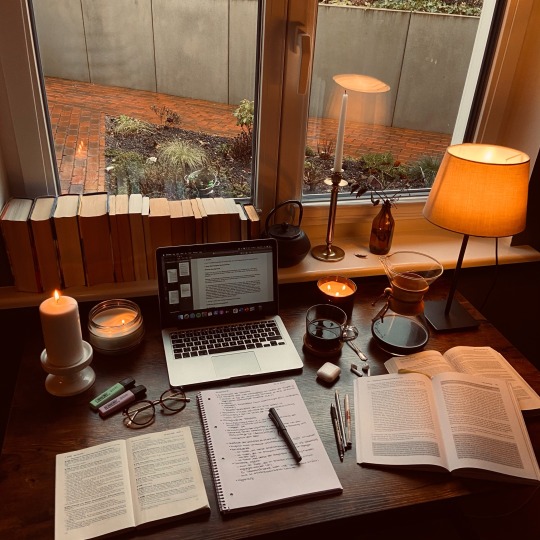
01/23/2021 ✨ happy weekend!
Instagram: andotherlawstories
11K notes
·
View notes
Photo



모두가 힘을 합치지 않으면 이겨낼 수 없기에 if we don’t work together we cannot overcome so
• 모두 all
• -이/가 subject marking particle
• 힘 strength
• -을/를 object marking particle
• 합치다 combine, unite, merge
• -지 않다 to not be
• -(으)면 if
• 이겨내다 overcome, defeat
• -(으)ㄹ 수 있다/없다 to be able to, can/to be unable to, cannot
• -기에 so, because (more formal than -길래, used more in writing)
함께 만들어가는 새로운 방역체계를 시작합니다 let’s start the new quarantine system we’re making together
• 함께 together
• 만들어가다 make, create (adding 가다 implies a continuous creation into the future)
• -(으)ㄴ/는/(으)ㄹ changes verb into adjective (past, present, and future tense)
• 새롭다 new, fresh
• 방역체계 quarantine system (방역 preventative measures against epidemics, 체계 system)
• 시작하다 to start
코로나를 이기는 힘! 당신의 노력과 참여에 있습니다 the power to defeat covid! is in your hard work and participation
• 코로나 covid, covid-19, coronavirus
• 이기다 win, beat
• 당신 you (careful with how you use)
• -의 possessive particle
• 노력 effort, endeavor, hard work
• -과/와 with, together, and (slightly formal)
• 참여 participation, involvement
• -에 location marking particle
• 있다 to have, to exist
29 notes
·
View notes
Photo
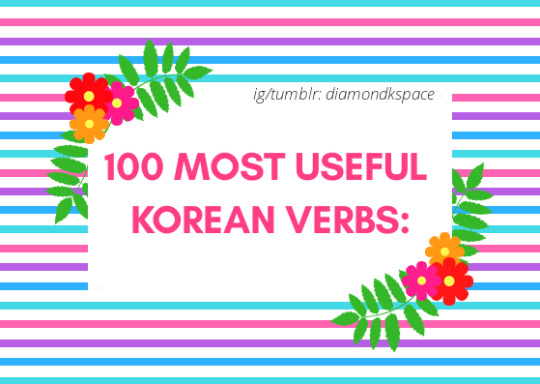
1. 오다: to come
2. 마시다: to drink
3. 먹다: to eat
4. 주다: to give
5. 가다: to go
6. 듣다: to hear
7. 배우다: to learn
8. 만들다: to make
9. 앉다: to sit
10. 자다: to sleep
11. 씻다: to wash
12. 쓰다: to write
13. 울다: to cry
14. 갖다: to have
15. 웃다: to laugh
16. 보다: to see
17. 일어나다: to get up
18. 걷다: to walk
19. 춤추다: to dance
20. 만나다: to meet
21. 공부하다: to study
22. 운전하다: to drive
23. 사다: to buy
24. 읽다: to read
25. 주문하다: to order
26. 입다: to wear
27. 찍다: to take (picture)
28. 쓰다: to wear (hat, eyewear)
29. 신다: to wear (shoes, socks)
30. 빌리다: to borrow, lend
31. 전화하다: to telephone
32. 말하다: to talk, speak
33. 가르치다: to teach
34. 기다리다: to wait
35. 걸다: to call, dial
36. 청소하다: to clean
37. 타다: to ride
38. 나가다: to exit
39. 들어오다: to enter
40. 물어보다: to ask
41. 필요하다: to need
42. 도와주다: to help
43. 열다: to open
44. 닫다: to close
45. 일하다: to work
46. 쉬다: to rest
47. 운동하다: to exercise
48. 생각하다: to think
49. 알다: to know
50. 모르다: to not know
51. 요리하다: to cook
52. 끓이다: to boil
53. 썰다: to chop, slice
54. 튀기다: to deep fry
55. 재다: to measure, weigh
56. 섞다: to mix, blend
57. 굽다: to roast, grill, bake
58. 볶다: to fry
59. 급다: to grill
60. 휘젓다: to stir
61. 하다: to do
62. 있다: to have
63. 없다: to not have
64. 이야기하다: to talk, chat
65. 연습하다: to practice
66. 묻다: to ask
67. 내다: to pay
68. 살다: to live
69. 죽다: to die
70. 태어나다: to be born
71. 사랑하다: to love
72. 좋아하다: to like
73. 싫어하다: to hate, dislike
74. 결혼하다: to marry
75. 축하하다: to congratulate
76. 걱정하다: to worry
77. 약속하다: to promise
78. 거짓말하다: to lie
79. 고백하다: to confess
80. 찾다: to find, to look for
81. 준비하다; to prepare
82. 가지다: to have
83. 기억하다: to remember
84. 꿈꾸다: to dream
85. 시작하다: to start
86. 끝나다: to finish
87. 보내다: to send
88. 사용하다: to use
89. 팔다: to sell
90. 싸우다: to fight
91. 대답하다: to answer
92. 소개하다: to introduce
93. 출발하다: to depart
94. 도착하다: to arrive
95. 벗다: to undress, take off clothes
96. 이기다: to win, defeat
97. 지다: to lose, be defeated
98. 서두르다: to hurry, rush
99. 사랑에 빠지다: to fall in love
100.죄송하다: to be sorry.
(Instead of the 30 Korean verbs/adjectives I said to post, I prefer this “100 most useful korean verbs” by SydneytoSeoul)
7K notes
·
View notes


